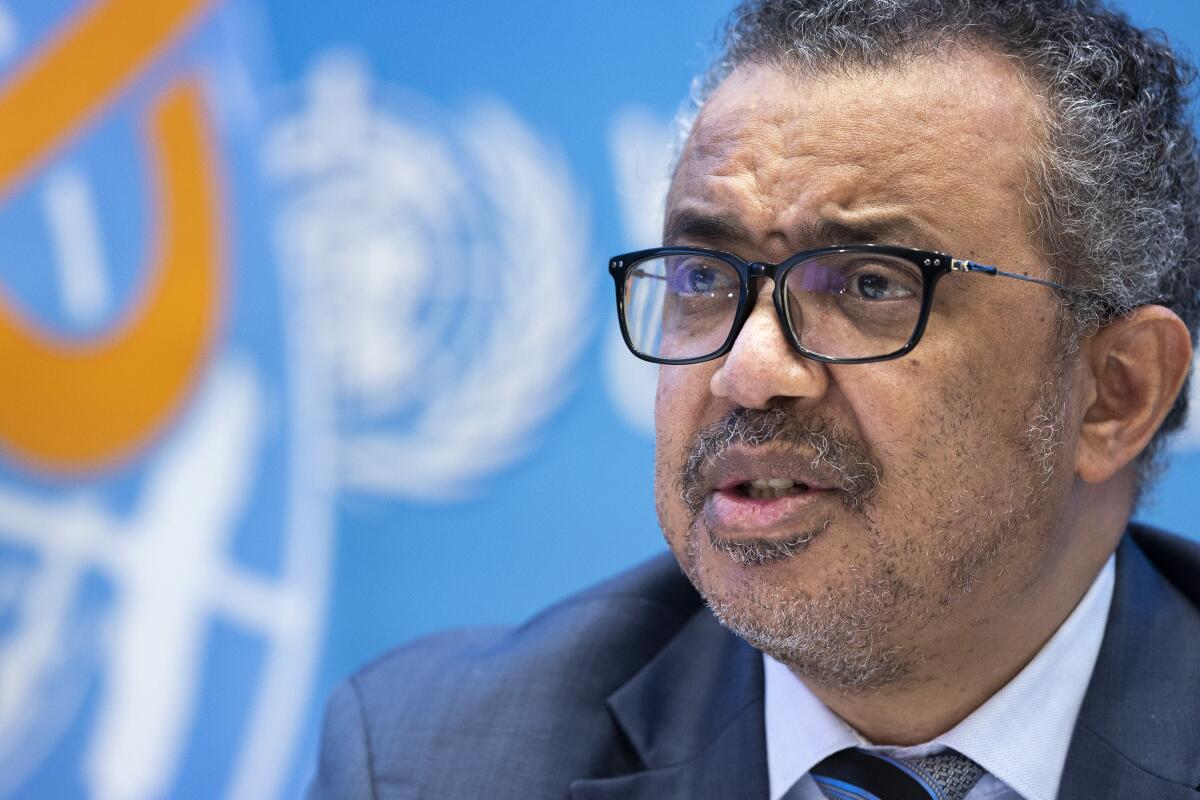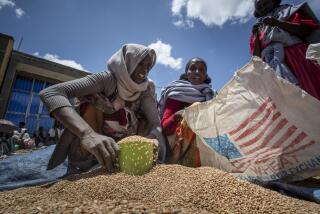WHO chief laments fate of starving relatives among 6 million people all but trapped in Tigray

GENEVA — The World Health Organization chief made a passionate appeal for his embattled home region of Tigray in Ethiopia on Thursday, saying he has relatives he cannot communicate with or send money to amid a blockade by government forces.
Tedros Adhanom Ghebreyesus, in some of his most personal comments about the region that erupted in violence again Wednesday after months of calm, lamented his inability to help loved ones among the 6 million people all but trapped in Tigray.
“I have many relatives there. I want to send the money. I cannot send the money. They are starving. I know I cannot help them,” he said, the latest in a string of pleas about Tigray he has made during regular WHO news briefings.
“I cannot help them. I can’t help them. I can share from what I have. I cannot do that because they are completely sealed off,” Tedros added. “I can’t speak to them. I don’t know even who is dead or who is alive.”
Tedros, an ethnic Tigrayan, insisted that he’s not playing favorites with Tigray and has spoken out about humanitarian crises in many places, including Yemen, Syria, Ukraine and Congo.
But he has sought to overcome perceived inaction and inattention from a world consumed with other trouble spots and worries, and previously said he believes his people have been overlooked because of the color of their skin.
He said the Tigray crisis was exceptional because the region is all but cut off from the world — including from most humanitarian aid shipments that its people need — by government forces in Ethiopia and neighboring Eritrea.
“Can you tell me any place in the same situation in the world?” he said. “We are talking about the 6 million people [who] are collectively being punished.”
On Wednesday, Tigray authorities accused Ethiopia’s military of launching a “large-scale” offensive for the first time in a year in Tigray. Government officials countered that Tigray forces had attacked first.
The conflict began in November 2020, killing thousands of people in Africa’s second most populous country.
More to Read
Sign up for Essential California
The most important California stories and recommendations in your inbox every morning.
You may occasionally receive promotional content from the Los Angeles Times.










